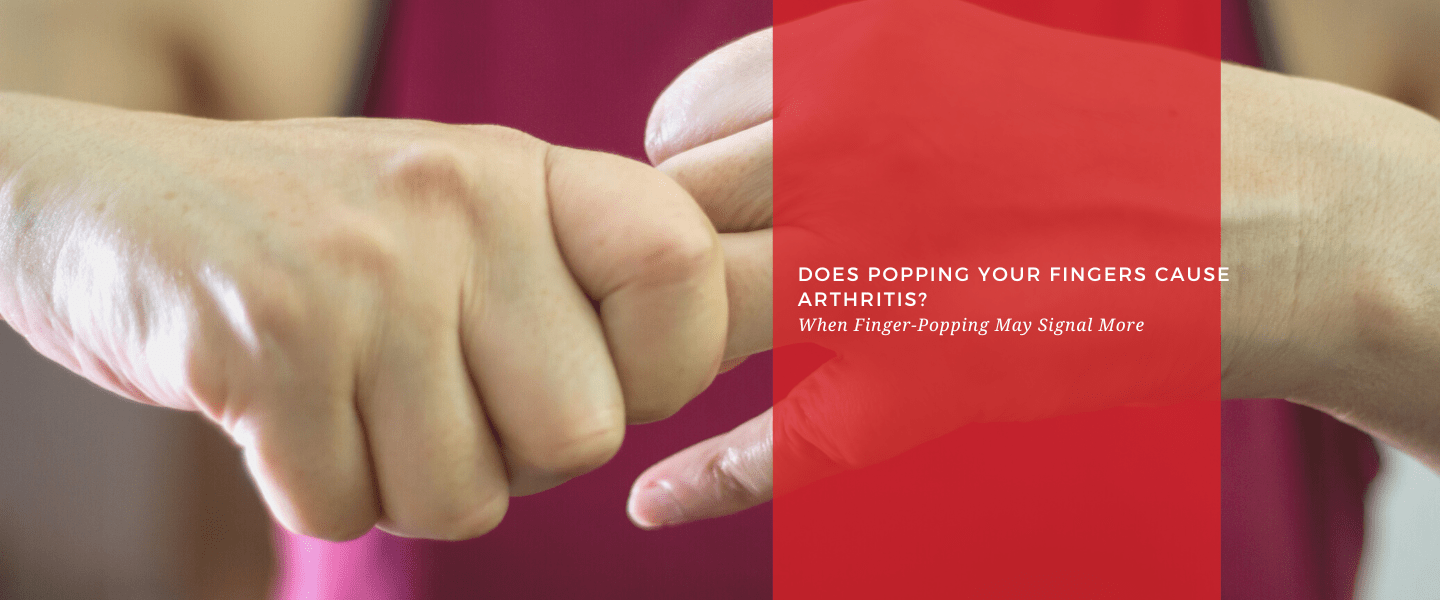With over 1 million orders

Does Popping Your Fingers Cause Arthritis? When Finger-Popping May Signal More
Does popping your fingers cause arthritis? In this article, we debunk the common myth and at the same time, explain why any discomfort experienced while doing so could be a sign of other joint issues. Know when it's just a harmless habit and when it may require medical attention.
So, you're a finger-popper. You've heard the lecture a thousand times: "You're going to give yourself arthritis!" But you still can't resist the oddly satisfying sensation. The question is, should you be worried? Or is this just another old wives' tale that's due for debunking? Let's flip the script and get to the truth.

Now, while science gives the all-clear for casual finger-popping (you can learn more about it in our post here), there's a caveat. If you pop your fingers regularly and start experiencing symptoms like pain, swelling, or a decrease in your range of motion, it might be time to pump the brakes. These could be signs of a deeper issue that has nothing to do with the popping itself.
Proceed With Caution
Here's the deal: if finger-popping is accompanied by discomfort, it could potentially indicate a joint problem. Whether it's a minor sprain or a more serious issue like tendonitis, it's worth taking seriously. Even if it doesn't turn out to be arthritis, nobody wants to live with an annoying, persistent ache.
If finger-popping becomes painful, you should be asking questions. Is it just a minor sprain that needs rest, or is there something more concerning going on? A variety of issues could be at play here—tendonitis, a torn ligament, or even early signs of a more severe joint condition. None of these are to be brushed aside; they need attention and, in some cases, immediate action.

And let's not underestimate the ripple effect of joint discomfort. Persistent aching in your fingers can be more than just physically hindering. It can also compromise your ability to perform daily tasks, from typing to driving, ultimately affecting your quality of life. Plus, consistent pain can lead to a negative mental state, including stress and anxiety, making it all the more crucial to get a proper diagnosis.
Consult the Experts
If you notice any of these symptoms, it's a good idea to get things checked out. Your healthcare provider can assess your symptoms and, if needed, guide you through further tests like X-rays or MRIs. Depending on the outcome, you might be referred to a specialist for treatment, which could range from physical therapy to medication.
Depending on your diagnosis, treatments could range from non-invasive methods like physical therapy to medications such as anti-inflammatory drugs. In more severe cases, surgical options might be considered. Specialists can provide tailored advice and treatment options suited to your condition and lifestyle needs.
By seeking expert advice, you're taking an important step towards better health. You'll not only be addressing the immediate symptoms but also preventing potential long-term damage to your joints. So if something feels off, make that appointment. Your future self might thank you for it.
Bottom Line: Does Popping Your Fingers Cause Arthritis?

The overall takeaway is pretty clear: for most of us, finger-popping is a harmless habit that won't lead to arthritis. However, it's essential to listen to your body. If something feels off, don't ignore it. Taking early action can make all the difference in managing any potential underlying issues.
For additional information on the the real impact of cracking your joints and its connection to arthritis, check out our other relevant articles below:
Does Cracking Knuckles Cause Arthritis--Dr. Arthritis Answers
Does Cracking Your Back Cause Arthritis? We Get To The Bottom of This Age Old Question
Can You Get Arthritis from Cracking Your Neck? --And Other Common Arthritis Myths
